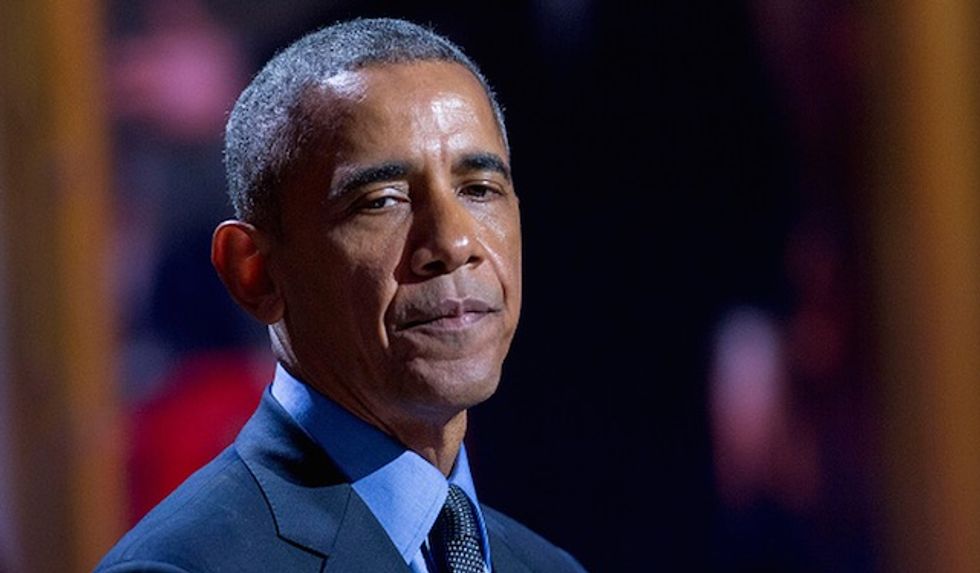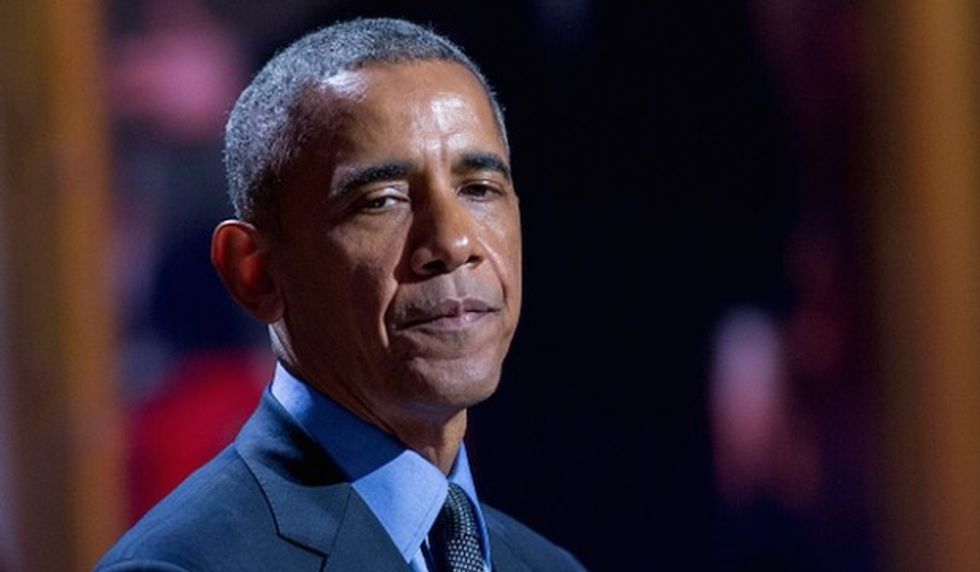
AP photo

How does one measure presidential success? How does one measure Barack Obama’s success? On November 8 an opinion piece in The Washington Post suggested that President Obama would consider his greatest successes to be getting Obamacare passed, vetoing the Keystone Pipeline, and “efforts to repair relations with Iran and Cuba.”
If that is success, what would failure look like?

Before looking at each of these areas that President Obama would likely “highlight” were he “given the opportunity to write the history of his presidency,” it is worth considering other items glaringly missing from this assessment.
One of the ways to think about presidential success is the economy. Certainly the economy is better today than when Obama took office: unemployment is down to pre-recession, George W. Bush administration levels that are the envy of most of the world. However, according to The Wall Street Journal this has been the weakest recovery since the Great Depression, limping along at a 2 percent growth rate.
Obviously President Obama does not wants to take credit for having the worst economic performance since Franklin D. Roosevelt in terms of the pace of recovery. Indeed, it is more likely that his policies, such as an inability to get his own party behind free-trade agreements like the Trans-Pacific Partnership, his party’s class warfare demagoguery, and the unfunded mandate of Obamacare, all slowed the recovery down. In other words, the anemic recovery occurred despite Obama.
[sharequote align="center"]In other words, the anemic recovery occurred despite Obama.[/sharequote]
When one considers international affairs, it is hard to say that Obama is leaving the U.S. and its allies more secure than when he came to office. America’s Middle Eastern allies still cannot understand a nuclear deal that seems to reward Iran and a disengagement strategy that has destabilized the region. American credibility in Eastern Europe and Central Asia, particularly when compared to Vladimir Putin’s geopolitical assertiveness, is weak. We treat strategic competitors, like China, to official state visits while they are destabilizing the seas of our close allies in Tokyo, Seoul, and Manila. At the same time, other stalwart allies like Israel are cold-shouldered.
Cuba? This is a country with a population similar to that of Ohio that cannot keep the electricity on—it is hardly a strategic competitor. When it comes to Iran, Ayatollah Khamenei signaled that he did not take the Joint Comprehensive Plan of Action (JCPOA) seriously: “any remarks by the other side [the U.S.] that says the structure of the sanctions will remain unchanged or imposition of any sanctions on Iran at any level under any pretext would translate into the violation of the JCPOA.”
Since it is hard to say that international affairs—or the U.S. national interest—is better off today than at the beginning of the Obama presidency, or that the Obama team make a positive, enduring impact on the U.S. economy, how about the Post’s three “successes?”
Certainly, for Obama as well as his ideological compatriots, the passage of Obamacare, buttressed by the U.S. Supreme Court, is a victory. Whether or not it is good for America in the long run is another issue.
Obama and the left-wing of the Democratic Party have long sought some form of universal health care, and they have few quibbles with the federal government stepping in should Obamacare fail. Indeed, that is precisely what is happening as state exchanges, which are not true free market exchanges and thus have perverse incentives to fail, hit the rocks. In the past month five state exchanges have fallen apart and it is likely more will follow. Certainly no business owner could call this a success. However, if the state exchanges disintegrate, this provides an aperture for Democrats to centralize even more power in Washington, D.C. over this growing market segment. In other words, this is a clear victory for Obama (in winning passage of Obamacare) and a clear win for those with socialistic tendencies, but most likely not a win for the majority of Americans and the U.S. economy.
The Keystone XL pipeline imbroglio is the Obama administration at its very worst. For years the White House refused to make a decision, leaving it in the hands of Hillary Clinton’s Department of State.
As Forbes noted, although our closest ally—Canada—wanted this energy-independence pipeline to go through for years, environmental activists claimed that a great strike against global carbon emissions would be to stop the Keystone pipeline. The Washington Post followed the logic of presidential gravitas, claiming Obama’s veto of the Keystone pipeline a “statement from the president of the United States that climate change is a serious factor in its decision-making process.”
It is truly amazing that spurning a neighbor and democratic ally, like Canada, in favor of buying more oil from Venezuela and the Persian Gulf, can be considered any form of success. It is also hard to imagine how continuing to rely on less ecologically sound oil producers, like Nigeria and Angola, has less of a long-term environmental impact than clean pipelines in North America managed by Canadians and Americans! Moreover, those who follow this closely realize that Obama only had the luxury of vetoing the pipeline thanks to significant increases in U.S. oil production, particularly due to fracking and advanced technologies pioneered during the Bush administration. Had gasoline been near $4 as it was at the beginning of his first term, Obama could not have vetoed Keystone. How is this a major presidential accomplishment?
If all of this sounds like some sort of Hollywood presidential comedy, perhaps Obama will add a fourth category when he (re)writes history: awards he won. He was given the Nobel Peace Prize in 2009. According to the Nobel Prize Committee, nominations must be in by February 1 each year. Obama was inaugurated on January 20 and therefore was nominated in the subsequent two weeks. He would have been shortlisted by March 31, after six weeks in office and notified in October. Perhaps that is his greatest success—essentially winning the Nobel Peace Prize in 12 days. It was all downhill after that.
Eric Patterson, Ph.D. is Dean of the Robertson School of Government at Regent University in Virginia Beach, VA.
–
TheBlaze contributor channel supports an open discourse on a range of views. The opinions expressed in this channel are solely those of each individual author.